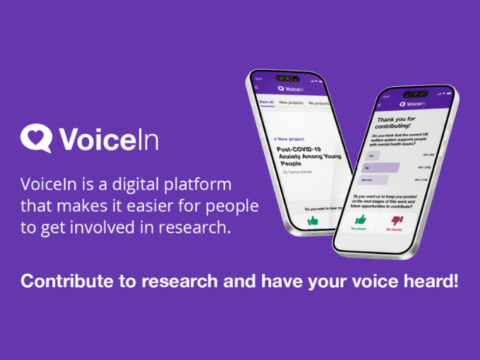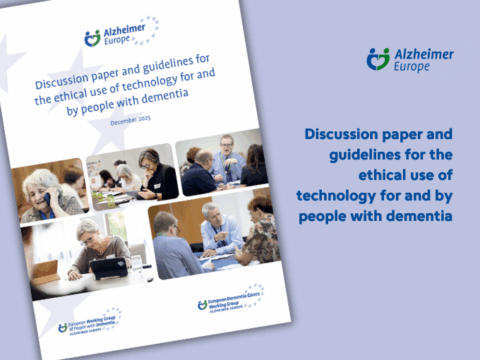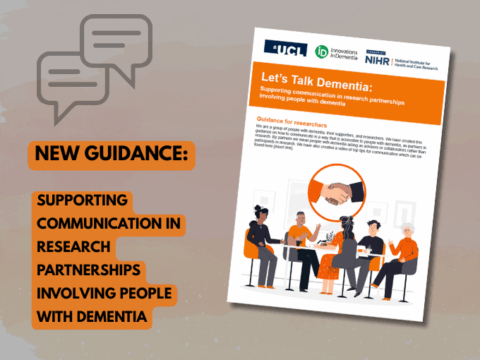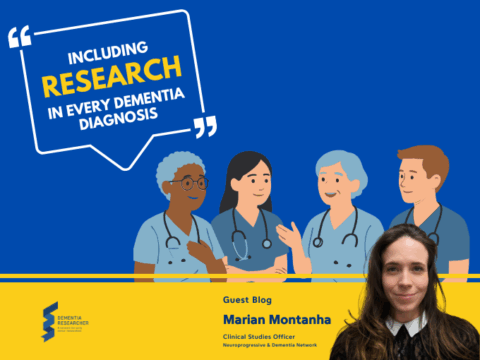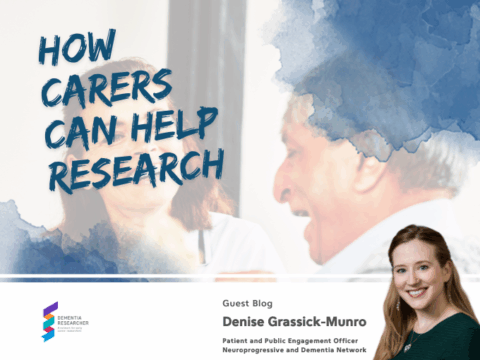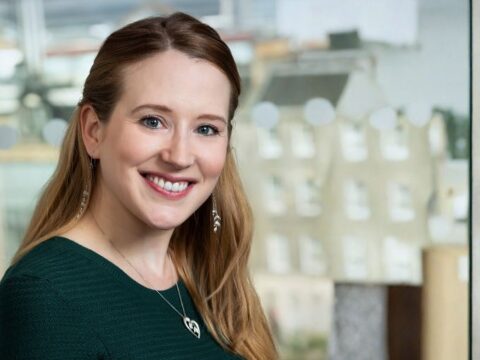This post shares a discussion between Dr Christine Carter a Postdoctoral Research Associate at Queen Mary University and Chandrika Kaviraj a family carer, patient and public involvement champion and study participant. This post is about experiences of working together on the NIHR Three schools EQUATED study (Equality of Opportunity for Timely Diagnosis: Principle Investigator, Charles Marshall), and a subsequent implementation study to disseminate findings from it in short films. Together they have developed this post from a transcript of their reflective discussion on completion of the research, it captures some of the essence of their collaboration and activity.
Talking about terminology
Christine: “In research we use terms such as co-production, lived experience, the abbreviated term PPI, qualitative and quantitative research, and co-production liberally, but not everybody is comfortable with that”. I learnt a lot from our discussions around how this ‘jargon’ can be off-putting to PPI members.
Chandrika: “Engagement is different to being involved”. Engagement feels one dimensional and detached, whereas involvement is two-way, people take your ideas on board. That’s what co-production is for me, it’s allowing something to grow and develop together you get the best from the PPI person rather than somebody that’s going to just say the things that you want them to say, it’s genuinely about making a change, getting an outcome, that is true engagement.

Chandrika and Christine at work
Creating good co-production.
Chandrika: “Don’t just say it mean it” researchers need to be authentic and genuine but sometimes academics seem to have set roles, and it feels as though you’re not an equal. Academics and clinicians have the knowledge and the power and need to use your information, and your experiences to fill in the gaps in their work. I think it’s about each of you setting out your own set of skills, experiences and insights, and map or match those together, you can come up with something more three dimensional, and a lot more fulfilling for everybody.
Christine: “As a researcher be flexible, don’t have a rigid framework and don’t be afraid to have a more fluid agenda”. My tip is to start with small scale plans made with people, finding out their individual needs. I worked one to one with someone with memory problems, supporting her to contribute to the larger group when we came together. As a researcher allow yourself the flexibility to do that and avoid responding quickly to the requests of: ‘we need to hold a co-production group’, as a researcher liberate yourself from that sense of ticking a box.
Being open and sharing yourself in co-production.
Chandrika Kaviraj: “Sometimes it feels like you’ve ticked the box as the person with lived experience”. Researchers want us to share everything about ourselves and sometimes that includes awful things that have happened to us, which is fine, because we’re hoping that something will change. But researchers need to meet us halfway and be willing to be open themselves, I don’t feel happy about sharing all my experiences and difficult challenges with someone who is listening, but not necessarily hearing. So, if you’ve got a goal for your piece of work, sometimes those goals can move, evolve into something else. You’ve got to be open to that.
Christine Carter: “In my experiences through this project there’s a lot of preparation to do co-production properly”. This fosters an authentic and genuineness to support people to be truly empowered. I have learnt you must be prepared to bring yourself to the project, revealing information about yourself might not feel part of your role as a researcher so it’s about getting a balance right between what you expect PPI members to do and what you should mutually provide to them.
Chandrika Kaviraj: “Researchers may listen, but they don’t necessarily hear”, It’s important for other researchers to use their backgrounds, everyone’s got a skill set”, then if you don’t feel comfortable trying to do that supportive side, collaborate with other people and researchers that can help you. Also, let yourself go a little bit and give a piece of yourself. That’s how people trust one another in the real word, try and do that in your work, you don’t have to give up all of yourself. What worked well on this project is that you were open to how the film would evolve and that was quite new for me. This is one of the projects where I do feel like we’re going to make some change, I can tell when researchers care about the subject matter. I really want to make sure that the research impacts the right people. I’d want to share it with my networks, whereas a lot of the time I’m bit reticent about doing that. Trust and integrity, authenticity, compassion, those sorts of things that that matter to me.
Mentoring and inter-personal co-production.
Christine: “Researchers who don’t feel confident in working with PPI people in co-production could benefit from mentoring”. Researchers could gain valuable experience from a mentor who’s involved in co-production in their research. Working on this project with you and the other members of the group has highlighted broader aspects of good co-production around interpersonal skills. As researchers having a balance between letting go of process whilst understanding that putting in preparation work to allow this is crucial
Chandrika Kaviraj: “I think that writing papers in academia is quite a solitary existence, and co-production means you have to be open” Teach other Early Career Researchers to take part with you, learning how to listen carefully. When researchers have listening and hearing skills, you can move the conversation along rather than it being quite rigid with certain elements to fulfil.
Finally.
This blog is our attempt to illustrate the connection between us which was fundamental to the EQUATED film project’s success. This success also involved rich conversations and discussions with other members of the PPI group. Sharing ideas helped us understand one another through our stories, motivations and the hopes and challenges we face as Public Participation Involvement (PPI) and Early Career Researcher (ECR) co-producers.
Authors:

Dr Christine Carter
Dr Christine Carter is a post-doctoral research associate at Queen Mary University in the Wolston Centre for Population Health working on the EQUATED project which explored how older people from minority ethnic groups in East London experience the early symptoms of dementia and seek help. She is a mental health nurse and worked with older people in community and liaison roles, and working in nurse education. Christine has recently completed an ESRC funded PhD at UCL, Department of Psychiatry which explored how active ageing policy and practice reconfigure experiences of cognitive impairment, which is not dementia, though a health and lifestyle intervention.

Chandrika Kaviraj
Chandrika Kaviraj cared for her mother, a stroke survivor, for 17 years and currently cares for her father. Both have cognitive impairment but no formal diagnosis of Dementia. Chandrika sat on a NICE Guideline Committee, currently sits on an NHS England board and continues to campaign for stronger and resilient stroke, Dementia and elder care.
Funding
This work is funded by the NIHR Three Schools’ Dementia Research Programme Call 2022. (NIHR206110) and the NIHR Three Schools’ Dementia Implementation fund 2024

 Print This Post
Print This Post